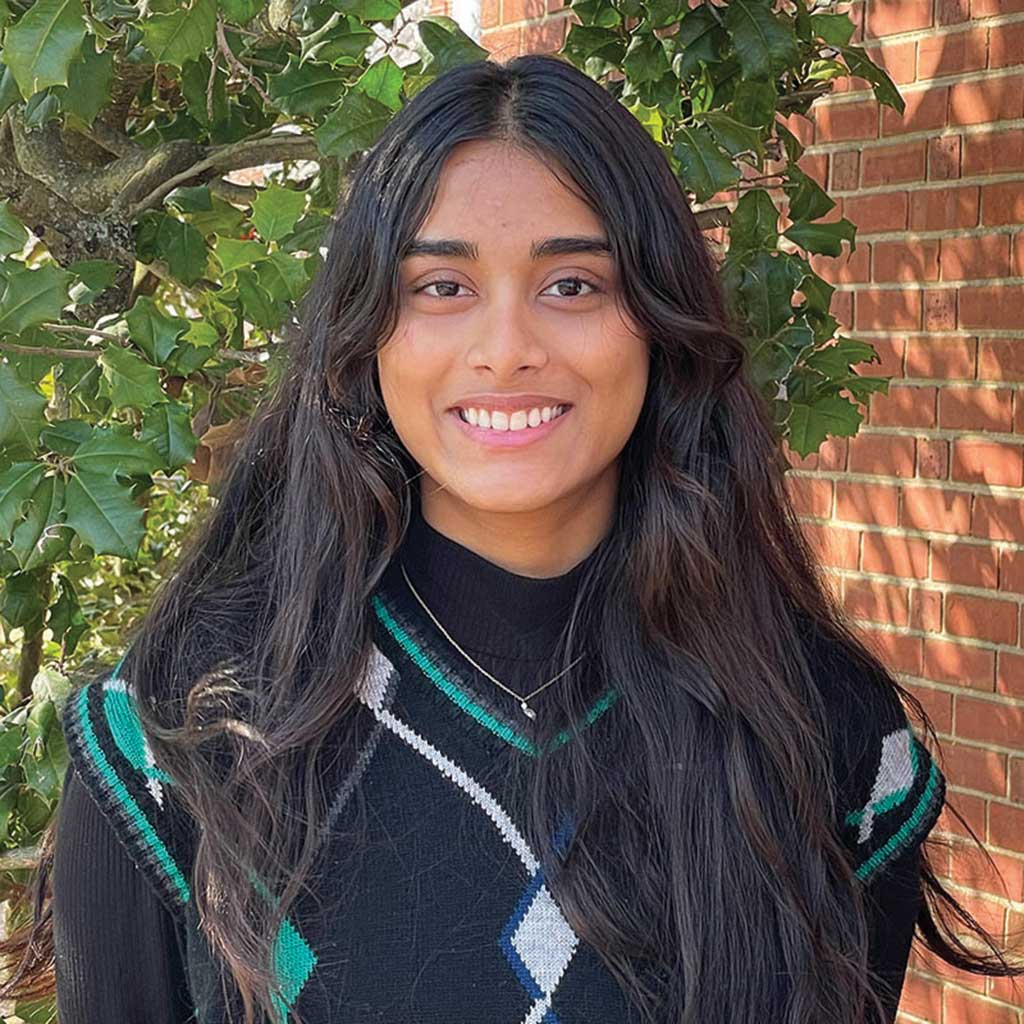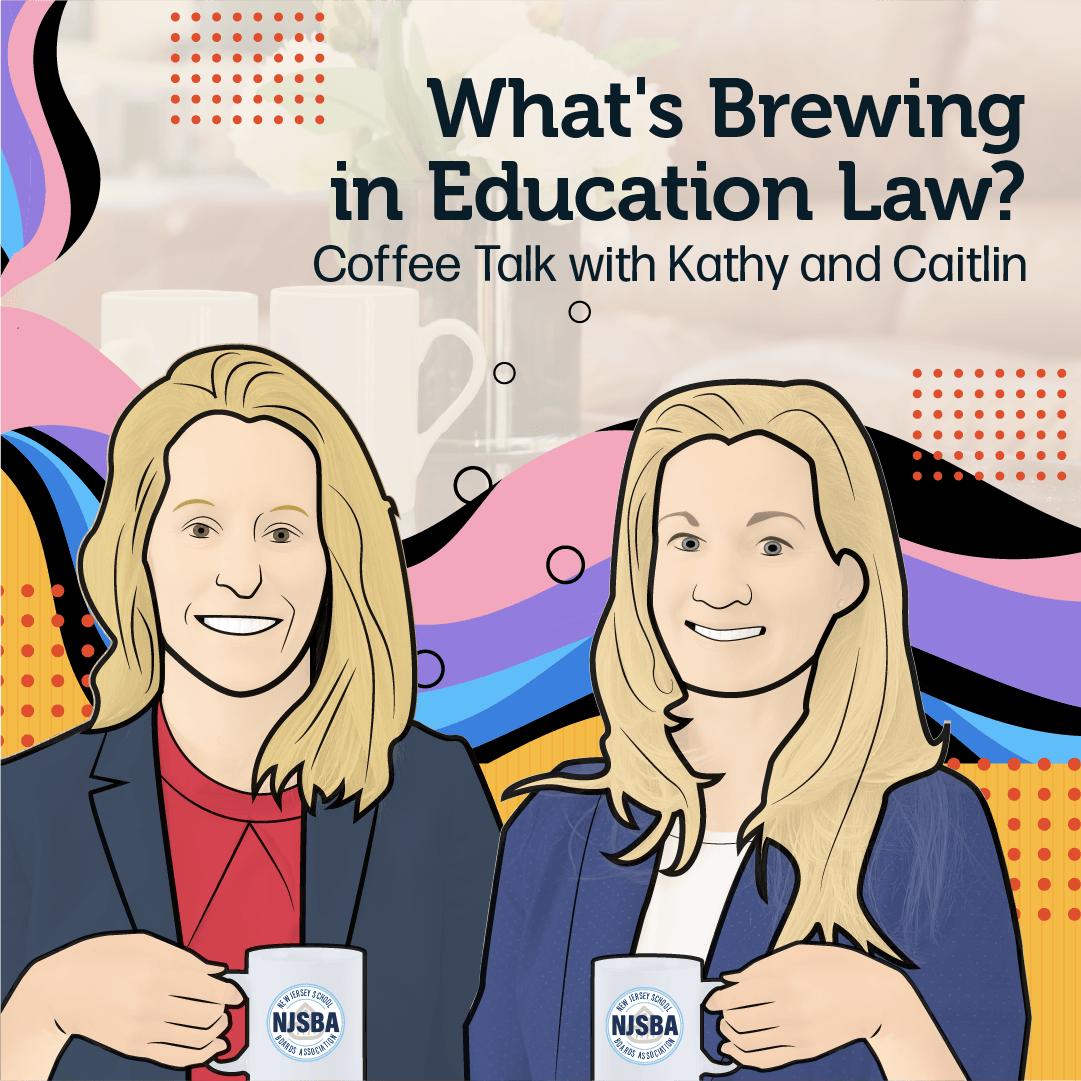
Nilanjana Ghosh, the New Jersey State Board of Education student representative, knew she was potentially making a big commitment when she sought to be elected to the post through the New Jersey Association of Student Councils.
Since 1976, the NJASC has elected the student representative, who also serves as one of the State Board’s nine state officers as a nonvoting member. The term of office for the student representative, as defined by the State Board, is from July 1 to June 30 of the following year.
Ghosh, 16, is a junior at West Windsor-Plainsboro High School North, where she got involved in student government in seventh grade. She serves as the special assignments officer on the High School North Student Council and is a member of the South Asian American Student Association. She participates in spring track, JSA, Key Club, Homefront Club, choir and theatre.
Each month, the student representative speaks on a topic of interest to students at the State Board meeting and offers feedback to other State Board members on a variety of issues. The student representative is expected to attend each monthly meeting.
Ghosh will be delivering a keynote presentation at the New Jersey School Boards Association’s annual Workshop at 10 a.m., Oct. 24.
School Leader recently caught up with her to learn how she decided to run for the student rep position, what she’s passionate about and more. Edited excerpts follow.
Can you tell us a little bit about yourself?
My family is from India – we came from West Bengal, and we speak Bengali at home. I was born in Mumbai, and I did spend a good part of my early childhood in India.
We moved to America when I was 8 and then to New Jersey, and I’ve been here ever since. I was really lucky to be around my culture and be around my family, and I have fond memories of my early childhood.
The West Windsor-Plainsboro area is densely populated with other Asians and is very diverse. I have gotten to be part of a really great community, which includes other people but also others from India, and I feel like I am really able to lean into experiencing my culture without feeling pressured to be any other way. I have friends and family in different parts of the country who don’t get to be in touch with their culture so much. So, I would say I am really lucky and very comfortable with that part of my identity. But at the end of the day, I am an American teenager.
My family has always really instilled the value of education in me and my older brother. I think a lot of kids with my history can relate to that, but I have never felt overly pressured to succeed, which is a dangerous stereotype that circulates. I’ve been taught that education is important and getting the best grades you can will make you feel good.
I have a healthy relationship with education because it is for me and not about pleasing my parents. With that said, I am really lucky to have all these opportunities here, and it is because my family has worked really hard.
So, how were you elected to be the student representative on the New Jersey State Board of Education?
The New Jersey State Board of Education collaborates with the NJASC.
The student representative rotates between North Jersey and South Jersey, and this year, being from a district that is considered part of North Jersey, I was eligible to run.
There is an interview process, and you have to be picked to represent your school. I was really interested after my adviser, Mr. Matthew Gore, told me what the position could mean for me and the accessibility it gives you in terms of having an impact.
If you look at it from an impact perspective, I think it is an important position. Sometimes, I think the position gets swept under the rug – it’s a long name and you might not immediately know what it means.
What has it been like so far to serve as the student rep to the State Board?
While the NJASC elections were held in January, my term did not start until July, so it was only a month ago that I had my first official speaking engagement at a board meeting.
You see how much effort goes on behind the scenes to make our education curriculum more inclusive. For someone my age to have a seat at the table where the decisions are made is incredible. Sometimes, discussions get heated, but it is only because people care. It is reassuring to see that people want the best for students.
I would say I am really lucky to serve in this role in the sense that New Jersey is considered to be among the best states in providing a public education. But there is always more work to be done.
Do you feel your voice is heard by the State Board?
I feel my voice is really valued, and I think that is important.
Oftentimes, you are the only young person in the room, and it can feel overwhelming.
Sometimes, I might be intimidated and think, “I am in a roomful of adults. Why do they care what I think?”
But they are aware of the fact that hearing a student is the only way to go forward in a way that will benefit other students. I have been told by so many others that hearing the student perspective is a highlight. My predecessor, Lauren Knopp (the former student representative to the State Board), told me this, and my adviser has told me this – and that is really important for any State Board representative to hear.
What do you think are some areas of education policy that would most benefit from a student’s perspective?
We always talk about the pandemic … but the truth is, we don’t know what the long-lasting effects will be.
The pandemic, for a lot of kids my age, was the first time we had a lot of time to reflect and learn about things like social justice, or to become more aware of how politics works. That time helped spark our interest in policy.
The pandemic also had a huge effect on how we function mentally, how much work load we can take on, etc. Ten years ago, maybe someone in our age group would have handled the same work differently. That is unfortunate, but you have to pivot and do what you need to do to help students as best as you can. Every single student at every grade level was affected, and we are going to see those effects for a long time.
One big question is how can we build a system of care for our students, so that they can move forward and handle their education in the best possible way? For instance, I have friends who are really high-achieving students, but they burn out, or they don’t know how to take care of themselves in a way so they can continue functioning.
I think these issues that we face in terms of mental health, in terms of identity, or in terms of how we are taught history are things that only a young person can voice.
What role does your adviser play in your capacity as the student representative to the State Board?
For any State Board meeting, an adviser has to accompany me. That is a big commitment. Also, when I had an NJASC meeting with other state officers, an adviser would accompany me to those as well. My advisers have been great and supportive.
Mr. Gore was really the reason I ran for this position, and I feel like you need someone who says what it means. He told me it is a big commitment, and he gave me good advice.
At the end of the day, it is great to have these adult experiences, but at the same time, I am just a kid, so it is good to have supportive adults around you.
What are some topics as they relate to education that you are particularly passionate about?
One effect of the pandemic has been an increase in housing insecurity and access to food. I have been thinking about that a lot. I have been inspired by Claire Chi, the student representative to the Pennsylvania State Board of Education, who has focused a lot of her work on providing food to homeless shelters and on providing free breakfast to all Pennsylvania students.
We talk a lot about mental health, and that is also so important, but if a student goes home and their parents are struggling to put food on the table, or if their parents are always arguing about money … well, that is life for a lot of kids.
I am really fortunate to live in the district I live in where most kids are not struggling with food insecurity, but a lot of kids are, and that is sad. Those problems might not always be obvious, and schools have the opportunity to do something about it.
What do you see yourself doing in the future?
For now, I would say my interests kind of fly between going to business school or studying government or law. I still have time to decide. But if things work out and I want the same things in the future, I may study finance with a minor in government. I might pursue policy or go to law school for a master’s degree.
Are you looking forward to participating in NJSBA’s Workshop?
I will be delivering a keynote speech, which is still being drafted. I am excited about the keynote but also a little nervous.
NJASC also gets to have a booth and host a workshop, which will focus on leadership styles. That workshop will really focus on determining what your strengths and weaknesses are and will be inspired by the Leadership Training Conference that NJASC holds every year. Everyone has strengths but everyone also has things they can work on.


